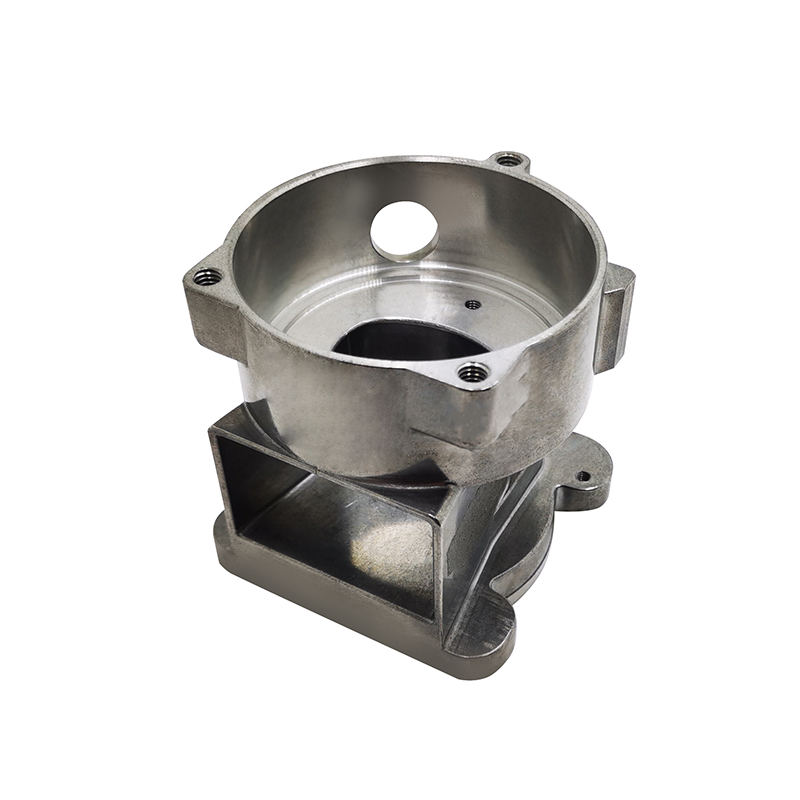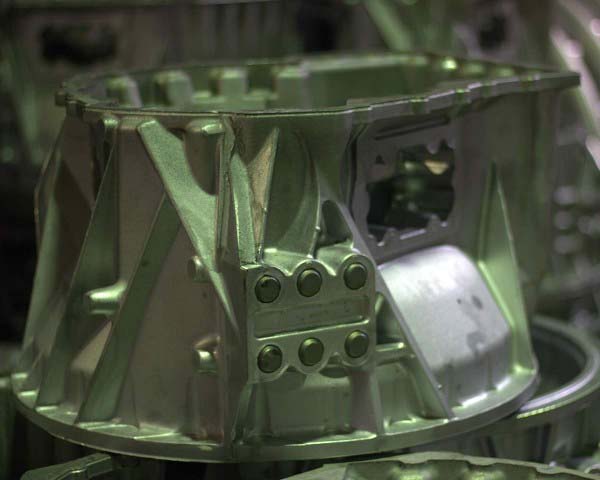Checking Out the Ingenious Processes Behind Modern Light Weight Aluminum Shop Operations
Modern light weight aluminum foundry operations are undertaking substantial change. Automation and AI are improving manufacturing approaches, improving both performance and precision. The combination of 3D printing is simplifying mold and mildew creation, while sustainability practices are becoming a lot more important. Each of these improvements plays a vital function in redefining the market. Nonetheless, the effects of these adjustments expand past plain production effectiveness. What difficulties and chances exist in advance for aluminum foundries in this evolving landscape?
The Role of Automation in Aluminum Foundries

Furthermore, automation adds to enhanced safety requirements within the foundry setting. By moving dangerous jobs to equipments, human workers can focus on supervisory functions and top quality control, reducing the threat of crashes. In addition, information analytics originated from automated processes give useful understandings into operational performance, causing much better decision-making and continuous enhancement. As the demand for light weight aluminum products grows, the adoption of automation modern technologies will likely increase, even more changing the landscape of aluminum foundry operations.
Advancements in Casting Technologies
Current developments in casting modern technologies are transforming aluminum shop procedures. Technologies such as 3D printing integration, advanced alloy solutions, and automated process optimization are enhancing efficiency and product quality. These developments are crucial in satisfying the developing needs of the industry.
3D Printing Integration
Integrating 3D printing technology right into light weight aluminum shop operations has actually transformed typical spreading approaches, boosting both performance and accuracy. This innovative strategy enables the rapid manufacturing of intricate mold and mildews and cores, significantly minimizing lead times and product waste. By utilizing additive production, shops can create intricate geometries that were impossible or formerly tough to attain with conventional strategies. The flexibility of 3D printing likewise allows quick design adjustments, promoting an extra active production process. On top of that, this combination supports the usage of light-weight structures, which is increasingly crucial in sectors such as automobile and aerospace. As aluminum factories proceed to adopt 3D printing, they position themselves at the forefront of technological improvement, driving enhancements in product quality and operational capabilities.
Advanced Alloy Formulations
The advancement of innovative alloy formulas has considerably boosted casting technologies in aluminum foundry operations. These formulations integrate various elements, such as copper, magnesium, and silicon, to improve mechanical homes and thermal resistance. By tailoring the composition of aluminum alloys, manufacturers can attain details performance features that satisfy the needs of varied applications, from automobile parts to aerospace structures. The usage of innovative alloys likewise adds to reduced weight and boosted strength, which are critical consider modern-day engineering. Additionally, innovations in alloy advancement make it possible for much better fluidity during spreading, resulting in improved surface area finishes and minimized issues. On the whole, progressed alloy formulas stand for a significant leap forward, positioning light weight aluminum foundries to satisfy the progressing requirements of various sectors successfully.
Automated Process Optimization
Innovations in casting modern technologies have led the way for computerized procedure enhancement in aluminum shop operations. By integrating innovative software application and real-time data analytics, factories can currently enhance manufacturing procedures and enhance quality control. Automated systems keep an eye on variables such as stress, temperature, and air conditioning prices, permitting for instant changes that reduce flaws and waste. Additionally, equipment understanding algorithms analyze historical efficiency information to forecast ideal setups, thus boosting efficiency and decreasing cycle times. Robotics additionally play a substantial duty, managing recurring tasks that enhance safety and security and precision. On the whole, these developments not only drive operational efficiency but additionally enable factories to fulfill the expanding need for high-quality light weight aluminum elements in numerous industries.
Smart Production and Sector 4.0 Combination
The integration of Smart Manufacturing and Sector 4.0 within aluminum factories is transforming functional efficiency. By leveraging IoT technologies, automation, and robotics, foundries can enhance manufacturing processes and lower downtime. Furthermore, data analytics gives crucial understandings that enhance decision-making and drive continual renovation.
IoT in Factory Procedures
As manufacturers increasingly accept the Internet of Points (IoT), shop procedures are experiencing a transformative change in the direction of wise production and Industry 4.0 integration. aluminum casting. IoT technologies enable real-time information collection and analysis, enhancing decision-making procedures and functional performance. Sensors and linked gadgets check tools efficiency, product use, and environmental problems, allowing for positive maintenance and source optimization. This connectivity promotes an extra active production atmosphere, where changes can be made quickly in action to market demands. In addition, IoT assists in improved traceability and quality assurance, as data from the entire production cycle can be easily accessed and examined. Generally, the combination of IoT in factory operations substantially enhances productivity and drives innovation in light weight aluminum production processes
Automation and Robotics Combination
Automation and robotics integration is reinventing light weight aluminum shop operations by improving efficiency and accuracy. This transformative approach enhances procedures such as molding, putting, and completing, minimizing human mistake and raising output uniformity. By using advanced robot systems, shops can attain greater manufacturing prices while preserving rigid top quality standards. Automated systems likewise enable real-time monitoring and flexible control, enabling swift modifications to manufacturing specifications. In addition, the integration of robotics decreases labor costs and minimizes safety and security risks associated with hand-operated handling of liquified steel. As factories embrace wise manufacturing principles inherent in Sector 4.0, the harmony in between automation and robotics solidifies their one-upmanship, leading the means for lasting growth and innovation in the aluminum casting sector.
Data Analytics for Performance
Using information analytics substantially boosts performance within aluminum shop operations, aligning with clever production and Industry 4.0 principles. By leveraging real-time data collection and analysis, shops can keep an eye on production processes, anticipate devices failings, and optimize source appropriation. This data-driven technique helps with informative decision-making, making it possible for managers to recognize bottlenecks and enhance process. In addition, predictive analytics equips shops to anticipate market demands, therefore decreasing waste and making certain timely product distribution. Integration of data analytics with IoT gadgets boosts functional exposure, promoting a positive upkeep culture. Eventually, implementing these advanced analytical methods not just boosts efficiency but also drives development, positioning light weight aluminum foundries to satisfy the progressing demands of the industry while preserving one-upmanships in a swiftly changing landscape.
Lasting Practices in Aluminum Spreading
While the light weight aluminum spreading sector has generally encountered ecological obstacles, lots of shops are currently embracing lasting techniques to minimize their influence (aluminum casting). A considerable focus has been on reusing light weight aluminum scrap, which not just minimizes waste yet likewise saves energy compared to primary light weight aluminum manufacturing. Ingenious melting modern technologies, such as induction heating systems, improve energy efficiency and reduced greenhouse gas exhausts
Furthermore, factories are executing closed-loop water systems to decrease water intake and minimize thermal contamination. The use of environmentally friendly binders in mold-making procedures is getting traction, further lowering unsafe discharges.
Additionally, some facilities are buying sustainable energy resources to power operations, aligning with worldwide sustainability goals. By integrating these practices, the light weight aluminum casting sector is developing towards a much more eco accountable future, showing that economic development can coexist with eco-friendly stewardship - Precision aluminum casting. These initiatives reflect a dedication to sustainability and the importance of ecological accountability in manufacturing
Quality Assurance Innovations
As the aluminum casting sector advances in the direction of sustainability, the significance of quality assurance innovations ends up being significantly obvious. Modern aluminum shops are adopting innovative technologies to improve their top quality assurance processes. Methods such as real-time surveillance and data analytics enable makers to detect inconsistencies and flaws early in the production cycle. Carrying out automated inspection systems furnished with maker discovering formulas guarantees that items meet rigid quality requirements while minimizing human error.
Moreover, the integration of non-destructive testing techniques, such as radiographic and ultrasonic inspections, provides much deeper understandings into the stability of spreadings without damaging the product. These technologies not only Aluminum Foundry boost item integrity however additionally reduce waste, aligning with sustainability goals. On top of that, the fostering of standard quality frameworks aids enhance procedures throughout various shops, ensuring consistency in result. Jointly, these innovations are improving quality assurance, cultivating a society of quality within the aluminum spreading field.
Future Fads in Light Weight Aluminum Factory Operations
What developments lie ahead for aluminum foundry procedures? The future of light weight aluminum foundries is poised for transformation via developments in automation, expert system, and lasting practices. The assimilation of robotics and automated systems is anticipated to improve efficiency and accuracy in the casting processes, decreasing human error and labor prices. Furthermore, AI-driven analytics will make it possible for real-time tracking and predictive maintenance, maximizing operational performance and lessening downtime.
Sustainability continues to be a focal point, with shops significantly embracing environment-friendly methods, such as using recycled light weight aluminum and developing low-emission melting technologies. Innovations in 3D printing are likewise expected to reinvent mold-making, enabling intricate geometries and reduced material waste. As the sector welcomes digitalization, data-driven decision-making will become critical, making it possible for factories to react quickly to market needs. Jointly, these trends guarantee to redefine aluminum shop operations, making them a lot more efficient, lasting, and versatile to future obstacles.

Frequently Asked Inquiries
What Precaution Are Implemented in Light Weight Aluminum Factory Operations?
Aluminum factory operations apply various safety and security actions, consisting of individual protective equipment, ventilation systems to take care of fumes, routine safety and security training, emergency response plans, and rigid monitoring of temperature and equipment to avoid mishaps and warranty worker safety.
Just How Do Shops Take Care Of Workforce Training for New Technologies?

What Materials Are Frequently Recycled in Light Weight Aluminum Foundries?
Light weight aluminum shops frequently reuse scrap light weight aluminum, including post-consumer items like drink cans, vehicle parts, and construction products. This recycling procedure decreases waste and preserves resources, adding to an extra lasting aluminum manufacturing industry.
How Does Aluminum Spreading Influence the Setting?
Aluminum casting effects the environment through energy-intensive procedures, greenhouse gas emissions, and possible regional air pollution. Nevertheless, innovations in recycling and lasting practices can alleviate these impacts, advertising an extra environmentally friendly method to aluminum manufacturing.
What Are the Regular Lead Times for Light Weight Aluminum Spreading Projects?
Normal preparation for aluminum casting jobs vary substantially, normally ranging from two to 6 weeks. Factors influencing these timelines consist of intricacy, order size, and material accessibility, impacting total manufacturing timetables in foundry procedures.
Automation progressively plays a necessary role in light weight aluminum factories, enhancing performance and precision in the manufacturing process. Innovations in casting technologies have actually paved the method for computerized procedure enhancement in light weight aluminum shop procedures. Taking advantage of data analytics considerably enhances effectiveness within light weight aluminum foundry operations, aligning with clever production and Sector 4.0 principles. A considerable focus has been on recycling light weight aluminum scrap, which not just decreases waste yet likewise conserves energy compared to main aluminum production. Light weight aluminum foundries generally recycle scrap light weight aluminum, including post-consumer products like beverage cans, automobile parts, and construction products.